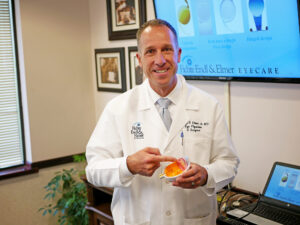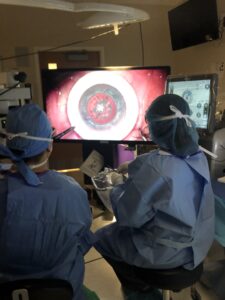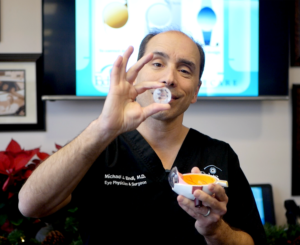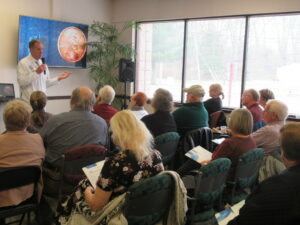
Not only is June the beginning of summer, but it also is Fireworks Eye Safety and Cataract Awareness Month. Annually, fireworks cause almost 10,000 injuries. Cataracts are one of the main reasons for vision loss.
Having an entire month dedicated to firework eye safety and cataracts is important to educate people about how to take care of their eyes. Keep reading to learn more about cataracts.
What are cataracts?

People develop cataracts when the eye’s natural lens becomes cloudy. For most people, cataracts develop as a result of the natural aging process. Many patients describe having cataracts as looking at the world through a cloudy window.
Some symptoms of cataracts include:
● Cloudy or foggy vision
● Difficulty driving at night like seeing halos around lights
● Needing frequent prescription changes
● Colors looking faded or tinted yellow. For example, a white t-shirt would look like it’s light yellow.
● Needing more light to see clearly
● Having double vision when you look at things
Can you treat cataracts?
Cataracts are not reversible. The only way to treat cataracts is to have cataract surgery. Cataract surgery involves numbing your eyes, creating an incision, removing the lens, and replacing it with an artificial lens.

The artificial lens is called an intraocular lens (IOL). There are several different kinds of IOLs to choose from. It’s important to talk with your doctor about the option that best fits your vision and lifestyle.
In the beginning, cataracts usually start off small and grow over time. Early on, your vision will not be impacted, but as cataracts grow, it becomes harder and harder to see.

When your cataracts start affecting your lifestyle, then it is time to talk with your eye doctor about cataract surgery. The best way to keep your eyes healthy is to eat a well-balanced diet and get frequent eye exams.
Do you think you may have cataracts? To learn more, consider attending one of our Cataract Surgery Lunch & Learn events. These free seminars are held monthly.
There you will enjoy an informative presentation given by one of our surgeons, see what a cataract is and why we get them, hear about lens implant options, and learn how we can correct astigmatism.
Also discussed will be the difference between laser and traditional procedures. Time for questions and answers is provided at the conclusion of the program. To register, visit www.fichte.com or call us at 1-800-309-2020



